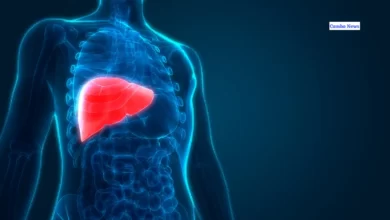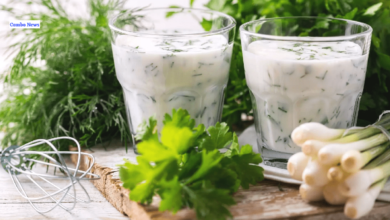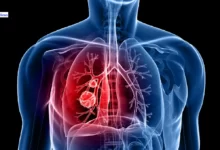
Table of Contents
Unveiling the Hidden Threat: A Comprehensive Guide to Intestinal Parasites and Their Symptoms
In a world where health is paramount, understanding the intricacies of intestinal parasites and their symptoms is crucial for maintaining overall well-being. These microscopic invaders, often underestimated, can wreak havoc on the human digestive system if left unchecked.
In this comprehensive guide, we’ll delve into the world of intestinal parasites, shedding light on their types, modes of transmission, and most importantly, the tell-tale signs that should raise alarm bells. Read on about intestinal parasites and their symptoms.
Intestinal Parasites and Their Symptoms

Types of Intestinal Parasites
Before we explore the symptoms, it’s essential to familiarize ourselves with the different types of intestinal parasites that can afflict humans. The most common include:
1. Giardia lamblia: A protozoan parasite causing giardiasis, it often spreads through contaminated water sources.
2. Ascaris lumbricoides: Known as the giant intestinal roundworm, it is one of the most prevalent helminthic parasites worldwide.
3. Entamoeba histolytica: This amoebic parasite is responsible for amoebiasis, a condition affecting the intestines.
4. Trichuris trichiura: Whipworms, as they are commonly known, inhabit the large intestine and cause trichuriasis.
5. Cryptosporidium: A microscopic parasite causing the diarrheal disease cryptosporidiosis, it can be transmitted through water and food.
Also Read | Early-life influences are significant, according to a new study on lung health
Symptoms of Intestinal Parasite Infection
Identifying the symptoms of intestinal parasite infections is crucial for timely diagnosis and treatment. While the specific symptoms may vary based on the type of parasite, there are common indicators that should not be ignored:
1. Digestive Distress: Intestinal parasites and their symptoms-Persistent abdominal pain, cramping, bloating, and gas can be indicative of an intestinal parasite infection.
2. Diarrhea or Constipation: Intestinal parasites and their symptoms-Sudden changes in bowel habits, ranging from diarrhea to constipation, may signal a parasitic invasion.
3. Unexplained Weight Loss: Intestinal parasites and their symptoms- Parasites can interfere with nutrient absorption, leading to unexplained weight loss even when dietary habits remain constant.
4. Fatigue: Intestinal parasites and their symptoms-Chronic fatigue, weakness, and lethargy are common symptoms as parasites consume essential nutrients meant for the host.
5. Nausea and Vomiting: Intestinal parasites and their symptoms- Intestinal parasites can irritate the digestive tract, causing persistent nausea and, in some cases, vomiting.
6. Visible Worms in Stool: Intestinal parasites and their symptoms- In more severe cases, adult worms may be visible in the stool, indicating a heavy infestation.
7. Itchy Skin or Rash: Intestinal parasites and their symptoms- Some parasites, like pinworms, can migrate to the anal area, causing itching and potentially leading to a rash.
8. Joint and Muscle Pain: Intestinal parasites and their symptoms- Parasitic infections can trigger inflammation and immune responses, resulting in joint and muscle pain.
9. Anemia: Intestinal parasites and their symptoms-Blood loss or nutrient malabsorption caused by parasites can lead to anemia, characterized by fatigue and pale skin.
10. Fever: Intestinal parasites and their symptoms-In certain parasitic infections, fever may occur as the body attempts to fight off the invaders.
Also Read | Symptoms of thyroid condition Problem: which can go undiagnosed for years
Prevention and Treatment

Preventing intestinal parasite infections involves adopting hygienic practices and being mindful of potential sources of contamination. Here are some preventive measures:
1. Practice Good Hygiene: Wash hands thoroughly after using the restroom and before handling food to minimize the risk of contamination.
2. Safe Food and Water: Consume well-cooked food and avoid drinking untreated or contaminated water, especially in regions where water quality is questionable.
3. Personal and Environmental Hygiene: Keep living spaces clean, and avoid contact with fecal matter. Teach children proper hygiene practices.
4. Avoid Raw or Undercooked Meat: Ensure that meat is cooked thoroughly to eliminate the risk of parasites.
5. Regular Health Check-ups: Periodic health check-ups can help identify and treat infections early, preventing complications.
In the event of an infection, medical intervention is crucial. Treatment typically involves antiparasitic medications prescribed by a healthcare professional. The choice of medication and duration of treatment depend on the specific parasite involved.
Also Read | Diabetes Prevention Tips and Its Link with Heart Attack
Intestinal Parasites and Their Symptoms – Key Facts
1. Global Prevalence: Intestinal parasites affect millions worldwide, with higher prevalence in developing regions with poor sanitation.
2. Waterborne Transmission: Many intestinal parasites, including Giardia and Cryptosporidium, are often transmitted through contaminated water sources.
3. Travel Risks: Travelers to tropical and subtropical regions face an increased risk of contracting intestinal parasites, emphasizing the importance of preventive measures.
4. Zoonotic Potential: Some parasites can be transmitted from animals to humans, highlighting the need for pet hygiene and responsible animal care.
5. Asymptomatic Carriers: In some cases, individuals may harbor parasites without exhibiting symptoms, contributing to the spread of infections.
6. Hygiene Education Impact: Public health campaigns promoting hygiene education have shown success in reducing the prevalence of intestinal parasites in certain regions.
7. Common in Children: Due to their exploratory behaviors and developing immune systems, children are more susceptible to intestinal parasite infections.
8. Chronic Infections: Without proper treatment, some intestinal parasite infections can become chronic, leading to long-term health issues.
9. Drug Resistance Concerns: The emergence of drug-resistant strains of certain parasites raises concerns about the effectiveness of conventional treatments.
10. Post-Treatment Hygiene: Maintaining good hygiene practices post-treatment is essential to prevent re-infection and ensure a complete recovery.
Conclusion
In conclusion, understanding the symptoms and risks associated with intestinal parasites is vital for safeguarding one’s health. By adopting preventive measures, practicing good hygiene, and seeking timely medical attention, individuals can mitigate the risks of intestinal parasite infections. Awareness and education play pivotal roles in reducing the global burden of these often overlooked yet potentially harmful invaders.
Also Read | Dental Care During Pregnancy, More Details Inside








